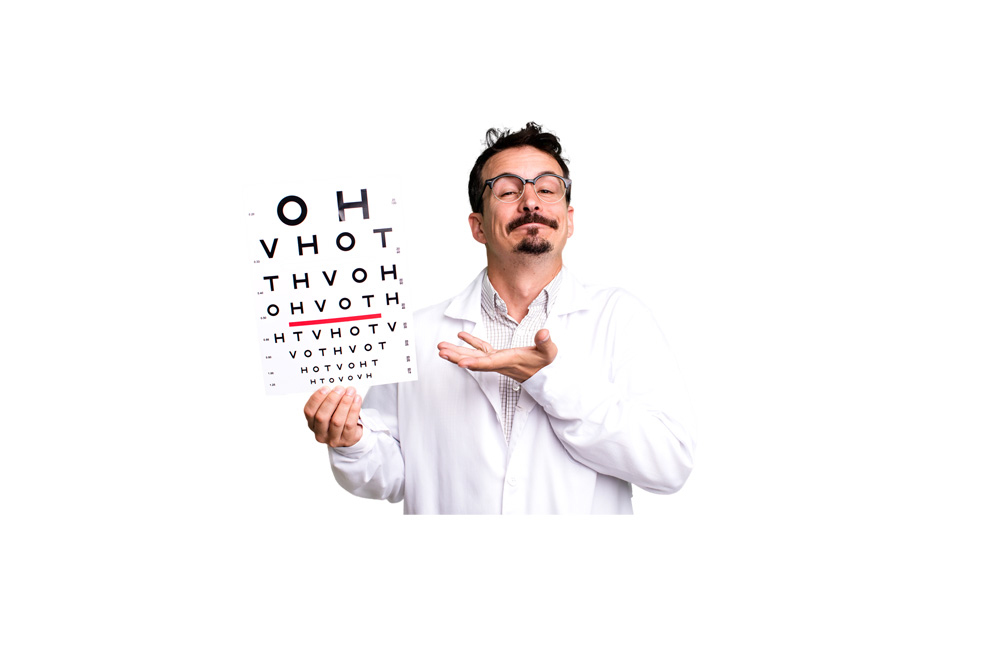Our eyes are the windows to our world, allowing us to experience the beauty and wonder around us. But like any precious possession, they require proper care to function at their best. Whether you’re a bookworm, a digital nomad, or someone who spends a lot of time outdoors, taking care of your eyes is crucial for maintaining good vision and overall well-being.
This guide explores 10 key strategies to keep your eyes healthy and prevent future problems:
1. Fuel Your Eyes with the Right Diet:
Just like the rest of your body, your eyes thrive on a balanced diet rich in essential nutrients. Here are some eye-friendly superstars to include:
- Leafy Green Vegetables: Packed with lutein and zeaxanthin, these powerhouses protect your eyes from age-related macular degeneration (AMD) and cataracts. Think spinach, kale, and collard greens.
- Fatty Fish: Salmon, tuna, and mackerel are brimming with omega-3 fatty acids, which contribute to healthy tear production and overall eye health.
- Citrus Fruits: Vitamin C is a potent antioxidant that helps fight free radical damage in the eyes. Load up on oranges, grapefruits, and limes.
- Eggs: Don’t skip the yolk! Eggs contain lutein, zeaxanthin, and zinc, all essential for maintaining healthy vision.
- Nuts and Seeds: Almonds, walnuts, and flaxseeds are rich in omega-3 fatty acids and vitamin E, which protects the eye’s surface.
2. Give Your Eyes a Digital Detox:
In today’s digital world, our eyes are constantly bombarded by screens. This can lead to eye strain, dryness, and discomfort. Here’s how to give your eyes a break:
- Follow the 20-20-20 Rule: Every 20 minutes, look away from your screen for 20 seconds and focus on an object 20 feet away. This allows your eyes to refocus and relax.
- Adjust Screen Brightness and Settings: Reduce screen brightness and adjust settings like night mode or warm color temperature to reduce eye strain.
- Increase Font Size: Staring at tiny text can be tiring. Increase the font size on your devices for comfortable reading.
- Take Screen Breaks: Schedule regular breaks throughout the day to step away from screens and allow your eyes to rest.
3. Embrace the Power of Sunglasses:
Sunlight, especially ultraviolet (UV) rays, can damage your eyes over time. Sunglasses are an essential line of defense:
- Look for 100% UV protection: Ensure your sunglasses block both UVA and UVB rays.
- Choose the Right Lens Color: Gray and brown lenses offer good overall protection. Consider polarized lenses for activities like driving or spending time near water, as they reduce glare.
- Consider Wraparound Styles: These provide extra protection from UV rays entering from the sides.
4. Don’t Forget Your Eyewear Needs:
Whether you wear glasses or contact lenses, proper care and hygiene are crucial:
- Schedule Regular Eye Exams: Visit your ophthalmologist for comprehensive eye exams to monitor your vision and detect any potential problems early on.
- Clean Your Glasses Regularly: Use a microfiber cloth and lens cleaner specifically designed for glasses to remove dust, smudges, and fingerprints without scratching the lenses.
- Practice Contact Lens Hygiene: Wash your hands thoroughly before handling contact lenses. Follow proper lens care instructions provided by your eye doctor.
- Replace Lenses Regularly: Don’t overwear your contact lenses, as this can increase the risk of infections.
5. Maintain a Healthy Lifestyle:
Healthy habits contribute significantly to overall well-being, including your eyes:
- Don’t Smoke: Smoking significantly increases the risk of developing eye diseases like macular degeneration and cataracts.
- Maintain a Healthy Weight: Obesity is linked to an increased risk of eye problems like diabetic retinopathy.
- Manage Stress: Chronic stress can contribute to eye strain and headaches. Practice relaxation techniques like yoga or meditation to manage stress levels.
6. Keep Your Environment Eye-Friendly:
Make your surroundings comfortable for your eyes:
- Adjust Lighting: Avoid working in overly bright or dim lighting. Opt for diffused or task lighting for optimal visual comfort.
- Maintain Proper Humidity: Dry air can irritate your eyes. Consider using a humidifier to add moisture to the air, especially during winter.
- Keep Your Workspace Clean and Dust-Free: Dust and allergens can irritate your eyes, so maintain a clean work and living environment.
7. Blink Frequently:
We tend to blink less often while focusing on screens, leading to dry eyes. Make a conscious effort to blink regularly, especially during screen time.
8. Get Enough Sleep:
When you sleep, your eyes get a chance to rest and repair themselves. Aim for 7-8 hours of quality sleep each night.
9. Know Your Family History:
Certain eye diseases can be hereditary. If you have a family history of eye problems, discuss this with your doctor and schedule regular eye exams to monitor your vision.
10. Be Mindful of Eye Makeup and Rubbing:
- Apply and Remove Eye Makeup Carefully: Use oil-free makeup products specifically formulated for the eyes. Remove your makeup gently with a gentle eye makeup remover before bed.
- Avoid Rubbing Your Eyes: Rubbing can irritate your eyes and worsen existing conditions. If your eyes itch, use artificial tears or consult your doctor.
Bonus Tip: Artificial Tears for Dry Eyes and Using Glasses Effectively
- Artificial Tears for Dry Eyes: Artificial tears can provide temporary relief from dry, irritated eyes. Opt for preservative-free options if you experience frequent dryness.
Using Glasses Effectively:
- Reading Glasses: If you experience blurry vision when reading, consult your eye doctor for a proper evaluation and consider using reading glasses for close-up tasks. This reduces eye strain and helps you focus clearly.
- Computer Glasses: For prolonged screen time on laptops and desktops, consider getting computer glasses. These glasses may have a slight magnification power and/or special coatings to reduce glare and blue light emission, which can contribute to eye strain and fatigue.
Remember: This article provides general information and should not be a substitute for professional medical advice. If you experience any eye problems or concerns, consult your ophthalmologist for a diagnosis and personalised treatment plan.
By incorporating these tips into your daily routine, you can safeguard your precious gift of sight and ensure healthy, vibrant vision for years to come.





